Most Powerful Egyptian Gods: Top 10 Strongest
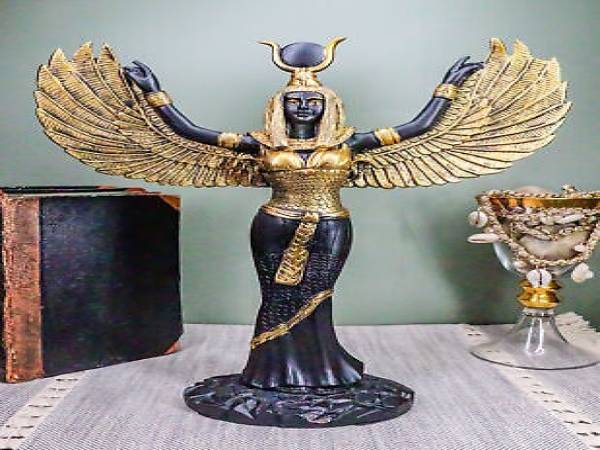
The ancient Egyptian mythology, a tapestry of gods and goddesses weaved an intricate narrative that shaped the beliefs, culture, and rituals of a civilization that thrived along the banks of the Nile for millennia. A pantheon adorned with multifaceted deities, each endowed with unique attributes, symbolized the rich tapestry of human experiences and the forces that governed both the mortal realm and the afterlife.
From the radiant sun god Ra, whose resplendent light illuminated the cosmos, to the enigmatic Osiris, the eternal god of rebirth who held the keys to the afterlife's mysteries, Egyptian mythology encapsulated a rich spectrum of divine qualities and influences. In the company of the goddess Isis, whose mastery of magic and nurturing nature brought hope to mortals, and Horus, the majestic falcon-headed deity who embodied skyward aspirations and earthly kingship, these gods left an indelible mark on Egyptian cosmology.
Intriguingly, the gods of ancient Egypt, including Amun, the creator god often intertwined with Ra, and Thoth, the wise scribe of the gods, manifested attributes both benevolent and formidable. Amid the pantheon's marvels, the complex interplay between forces of chaos, represented by Seth, and order captivated the imagination, underscoring the multifarious nature of existence.
Delve with us into the ethereal sands of time as we embark on a journey to explore the captivating tales of Egyptian deities, unravel their myths, and uncover the tenets that guided the lives and aspirations of an ancient civilization. In this exploration, we shall encounter gods of unrivaled power, wisdom, and allure, who continue to captivate hearts and minds with their enduring mystique.
Most Powerful Egyptian Gods: Top 10 Strongest
- Ra (Re): The sun god and creator, considered the most powerful.
- Osiris: The god of the afterlife and rebirth, associated with resurrection.
- Isis: A goddess of magic, fertility, and motherhood, known for her powerful spells.
- Horus: The god of the sky and kingship, often depicted with a falcon's head.
- Amun: A major god, associated with creation and sometimes fused with Ra.
- Anubis: The god of mummification and the afterlife, guardian of tombs.
- Thoth: The god of wisdom, writing, and magic, often depicted with an ibis head.
- Seth (Set): The god of chaos, storms, and desert, often in conflict with other gods.
- Hathor: The goddess of love, music, and motherhood, also associated with the sky.
- Bastet: The goddess of home, cats, and protection, revered for her ferocity
1. Ra (Re)
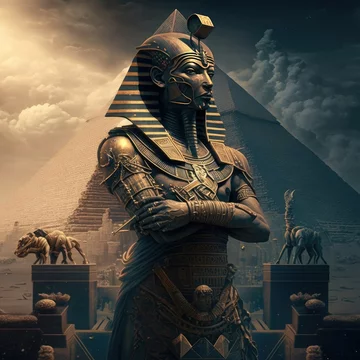
The quintessential deity, Ra, embodied the potent energy of the sun, casting his luminous rays upon the earth. Revered as the creator of all, he sailed the celestial waters during the day, steering the solar barge that illuminated the world. Ra's dominion extended beyond the skies, symbolizing life and growth, while his fierce form, the sun at its zenith, struck awe into the hearts of mortals.
2. Osiris
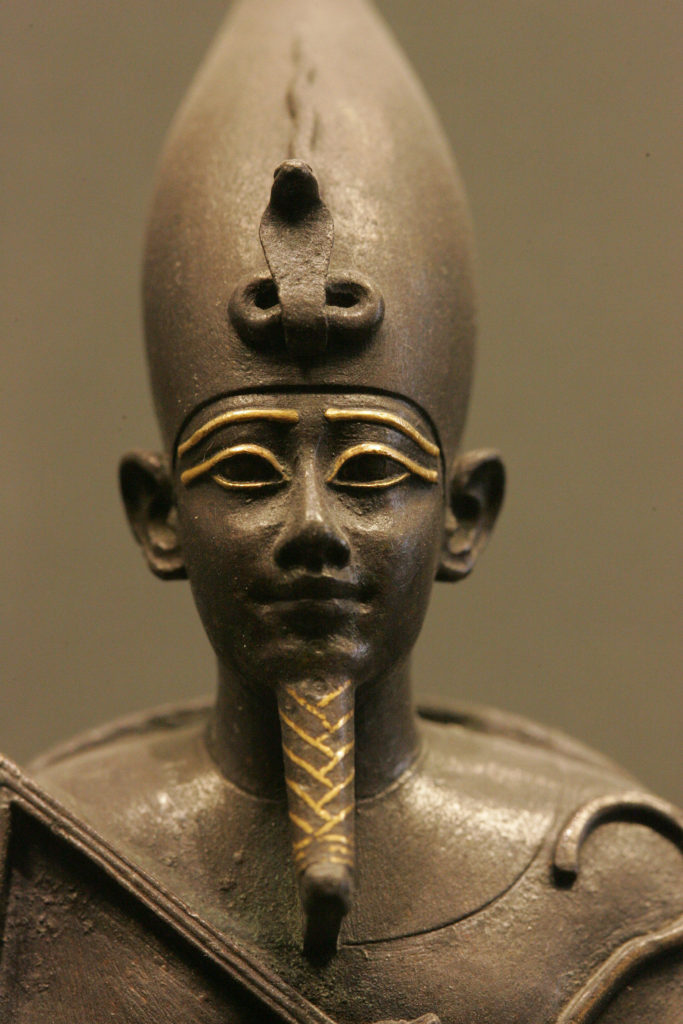
READ ALSO » Top 10 Greatest Ancient Egyptian Monuments
The god of transformation and rebirth, Osiris held sway over the realm of the afterlife. A compassionate judge, he weighed the hearts of the deceased against a feather, determining their fate in the beyond. His own tale, marked by betrayal and resurrection, mirrored the cycle of life, death, and renewal, bringing comfort to those seeking solace in the mysteries of existence.
3. Isis
A paragon of feminine power, Isis personified magic, motherhood, and healing. Her devotion to her husband, Osiris, drove her to gather his scattered remains, showcasing her determination and resourcefulness. A master of spells, she wielded potent incantations to protect her loved ones, embodying the nurturing yet formidable essence of the divine feminine.
4. Horus
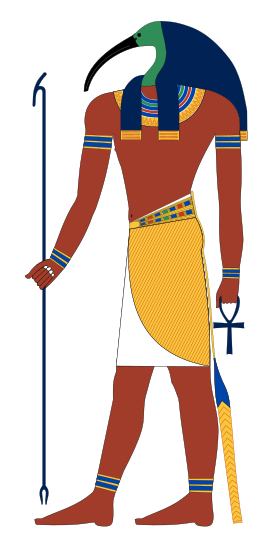
With the head of a falcon and the body of a man, Horus united the heavens and the earth. His eyes, symbolizing the sun and moon, evoked the dual nature of his dominion. As the embodiment of kingship, he fought valiantly against the treacherous Set, upholding order and justice while guiding pharaohs as a divine protector.
5. Amun
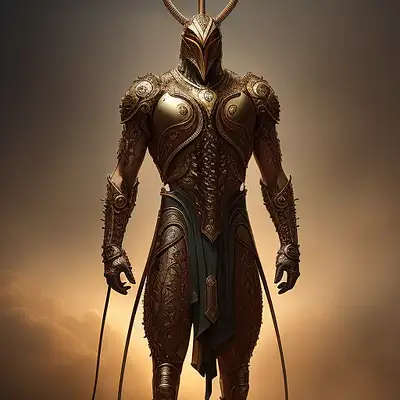
The veiled deity of hidden power, Amun often merged with Ra, forming Amun-Ra, a god of immense creative energy. His inscrutable nature resonated with the enigmatic depths of the cosmos. Revered as the ultimate creator god, his aura of mystery captivated worshippers, emphasizing the uncharted territories of the divine that lay beyond mortal understanding.
6. Anubis

With the head of a jackal, Anubis stood as the sentinel of the afterlife. Guiding souls through the treacherous journey to the beyond, he oversaw mummification and judged the purity of hearts. Anubis' unwavering loyalty to his role as the guardian of the deceased showcased a deity both compassionate and unwavering in the face of mortality's mysteries.
7. Thoth
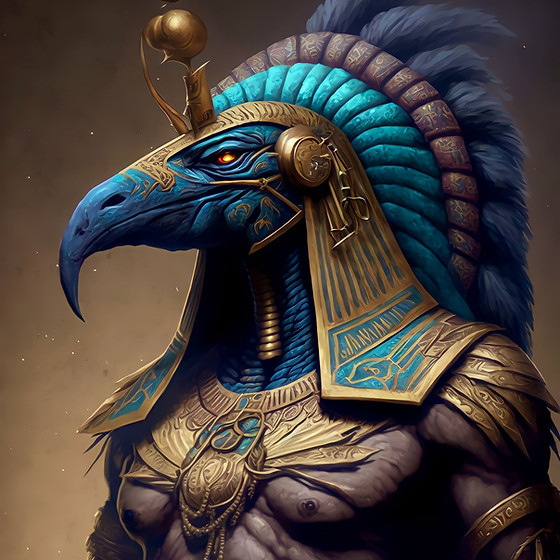
The ibis-headed god Thoth held the quill that inscribed the very fabric of existence. A harbinger of wisdom, writing, and magic, Thoth bridged the gap between humans and the divine. As the mediator of disputes among the gods and the scribe of fate, he embodied intellect and balance, serving as a reminder of the delicate equilibrium between opposing forces.
8. Seth (Set)
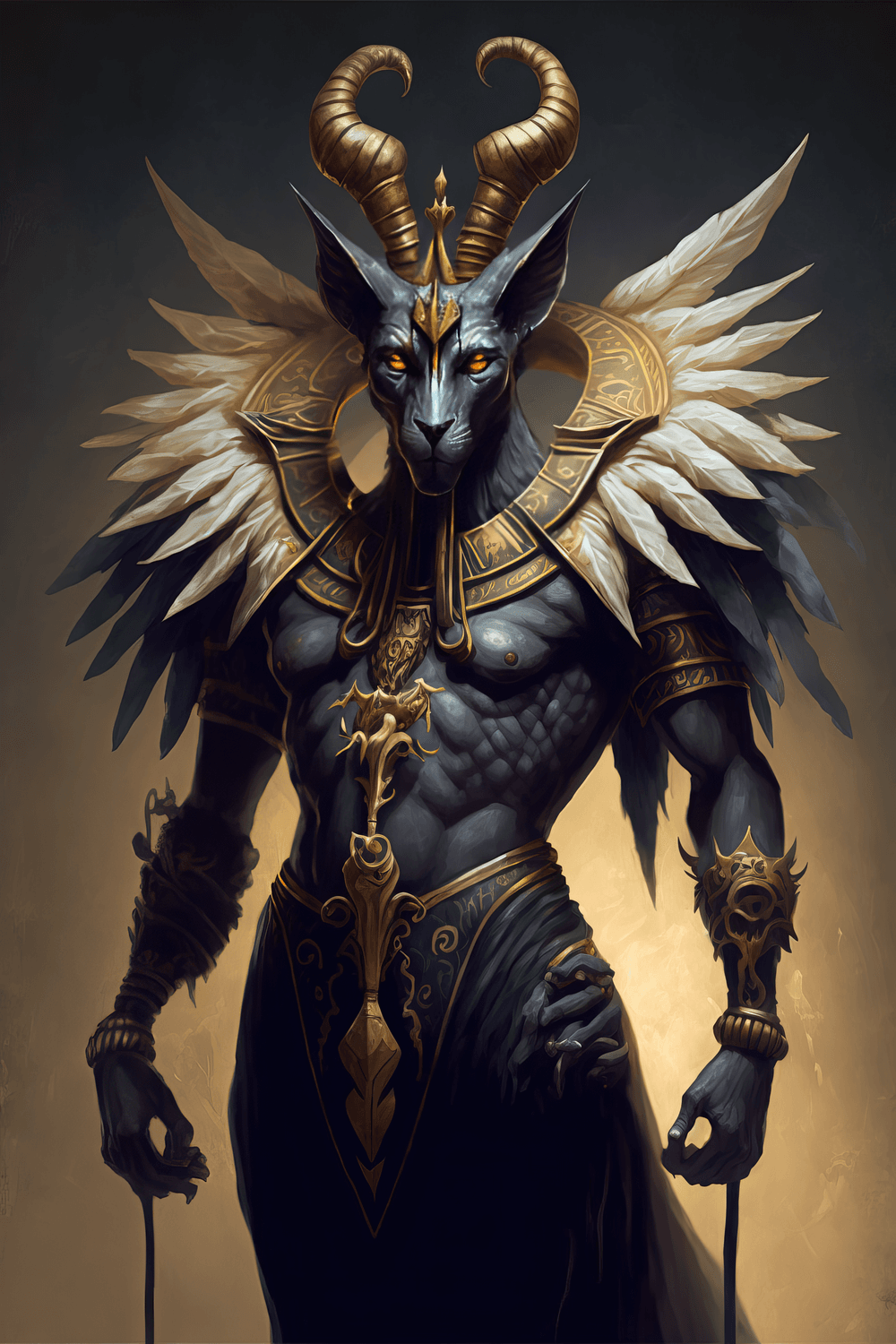
Often misunderstood, Seth represented the tumultuous aspects of existence. A god of storms, chaos, and the desert, his battles with Horus depicted the struggle between opposing cosmic principles. His restless spirit symbolized the forces that both challenged and strengthened the pantheon, underscoring the complex interplay of creation and destruction.
9. Hathor
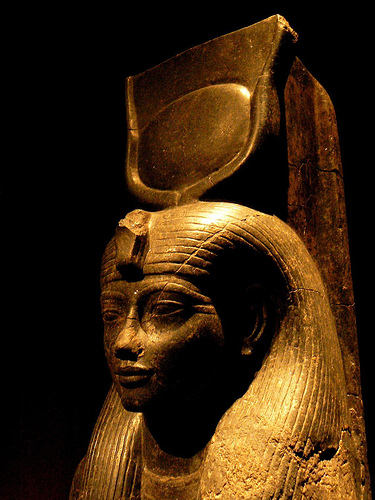
READ ALSO » Top 10 Most Strongest/Powerful Animal In The World
The embodiment of feminine grace and ferocity, Hathor was a goddess of multifaceted qualities. From nurturing motherhood to the ecstasy of music and dance, she was also associated with the skies as the Mistress of the West. Hathor's duality demonstrated the harmonious blend of nurturing love and the power to defend against threats.
10. Bastet
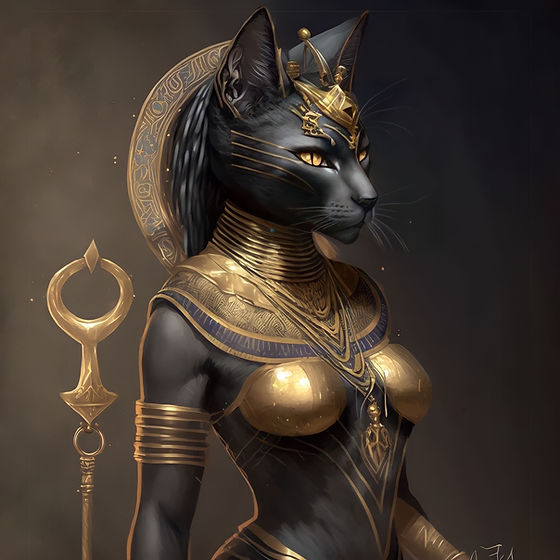
Revered as the guardian of homes, cats, and childbirth, Bastet showcased a tender yet fierce aspect of divinity. With the head of a lioness or domestic cat, she symbolizes protection and was believed to ward off evil spirits. Her joyful celebrations highlighted the vibrant spirit of Egyptian culture, rendering her a beloved deity cherished for her dual nature of ferocity and festivity.
In the tapestry of Egyptian mythology, these ten gods stand as pillars of power, wisdom, and wonder, shaping the beliefs and worldview of a civilization that has captivated the world for centuries. Each deity, with their unique attributes and stories, embodied the complexities of human experience, from the blazing radiance of Ra to the compassionate judgment of Osiris, the mystical magic of Isis, and the dual nature of Horus. Their interactions and conflicts mirrored the intricacies of existence, revealing the delicate balance between creation and chaos, order and disruption.
These gods transcended time, leaving an indelible mark on human history, reminding us of the profound connections between mortals and the celestial forces that both guide and challenge us. Their enduring presence continues to cast a spell, offering glimpses into the unfathomable mysteries of life, death, and the boundless realms that lie beyond.
